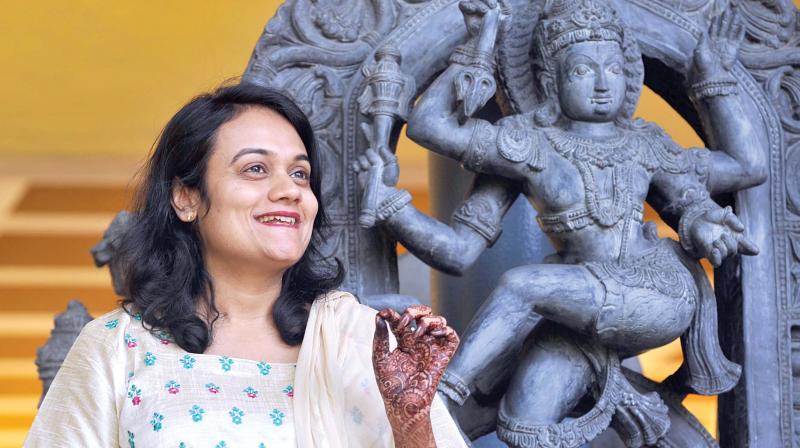Urban Legend: Making music more relevant to mind, body and soul

Music as therapy may have gained wide acceptance in other parts of the world today, but in India, which is home to ancient manuscripts like the Raga Chikitsa that spoke of it, the idea is still to make any significant headway. Helping the process is Deepti Navaratna, regional director of the Indira Gandhi National Centre for Arts (IGNCA), Bengaluru, who believes music therapy can help those suffering from autism and dyslexia based on er own research, Aksheev Thakur reports.
The ancient Indian text, Raag Chikitsa, dealt with the therapeutic effects of music, and the system of Nada Yoga recognised the impact of music on body and mind, but sadly, while music or rhythm therapy is today widely practised abroad, it has still to find acceptance in the country. Striving to make place for it, however, is Ms Deepti Navaratna, regional director of the Indira Gandhi National Centre for Arts (IGNCA) in Bengaluru, who with a doctorate in neuroscience under her belt has pursued research on the neuro-psycho-biological aspects of musical rhythm, and developing cognitive therapies for autism and dyslexia, traversing an as yet largely unchartered territory in India.
“Music can impact powerful faculties of the mind and help those with autism, and dyslexia. But unlike abroad, the research into this is still nascent in India,” she explains.
Although from a family of educators, it was her mother’s values and her own understanding of Carnatic music, dance and literature that has been her driving passion. While her interest in classical music began as a teenager, it was after she left for the USA to pursue a medical profession in neuroscience that she gave wings to her innate passion for it.
“I worked at Harvard as an assistant neuroscientist and pursued music at the same time. Music is my ultimate interest and so I went on to pursue my masters in it,” she reveals.
But in 2016 when she got the opportunity to take over as regional director of the IGNCA in the city , being a true blood Bengalurean , she decided to return to it. “The IGNCA is an interdisciplinary research centre and this excited me. I wanted to come back to India to do research in music and the moment an opportunity came, I jumped to grab it,” she laughs.
In 2015-16, Ms Navaratna launched the Carnatic Alchemy Project, an NGO dedicated to widening the appeal of South Indian Classical music among diverse audiences. The project is currently funded by the Massachusetts Cultural Council.
But its not just in the medical field that music has its uses, in her view, but also in cultural diplomacy, helping to build bridges among warring nations. While several filmmakers have suggested banning Pakistani film artistes in the midst of worsening Indo-Pak ties, Ms Navaratna believes music can provide a window of mutual appreciation among nations even if it cannot resolve national issues. “Music is a resource for a lot of things and can provide an opportunity for cultural diplomacy too,” she reasons.
Her cultural diplomacy project, Dialogues with the Divine- a Community has been responsible for a series of inter-cultural explorations. “I once sang in Hebrew before an Indian, American Jewish audience at a Jewish synagogue. I ended up singing proper Carnatic music,” she recalls with a smile.
And soon, in April, Ms Navaratna will perform alongside Israeli singers at the Israeli Consulate, marking the first step towards bringing the Dialogues with the Divine concept to India. But her achievements don’t end there. At INGCA she has been responsible for the release of seven musical CDs and books on various aspects of different cultures.
Ask her about Carnatic music and she says it has undergone a periodic change in the past 150 years but its reach has not broadened as yet. “Carnatic music needs a good music entrepreneur, who is ready to take it forward. Carnatic music was never meant to be a Sonu Nigam concert as it is a serious pursuit of art and music. But classical music needs to move forward,” she concludes.

